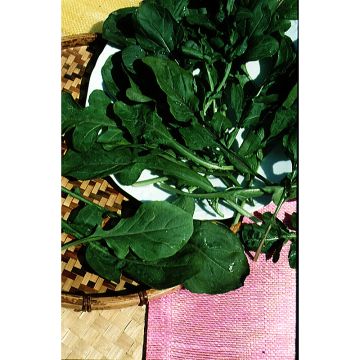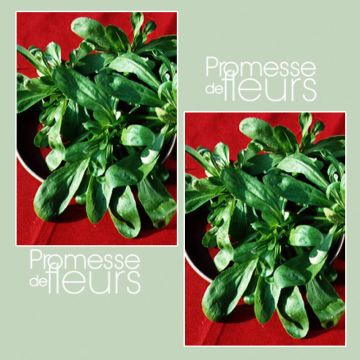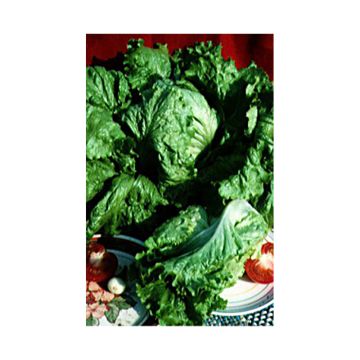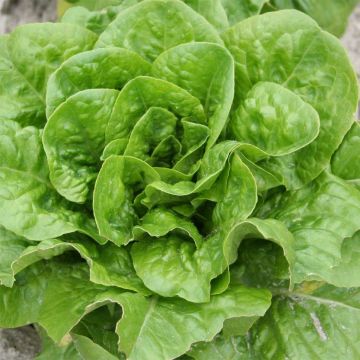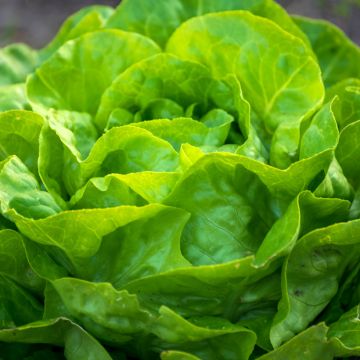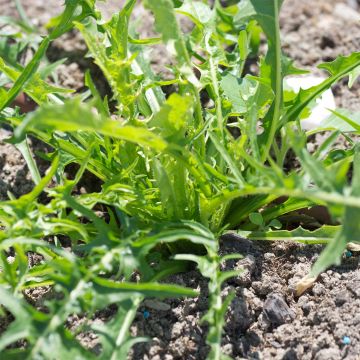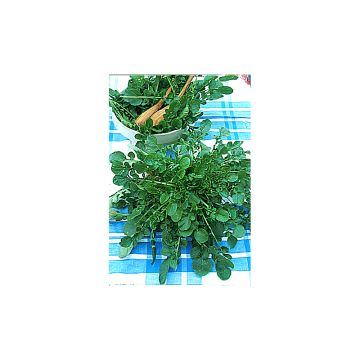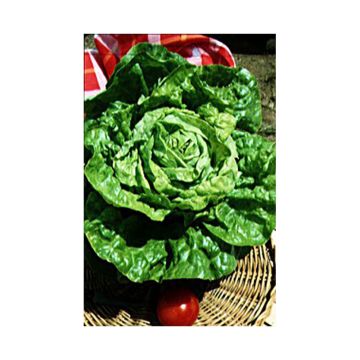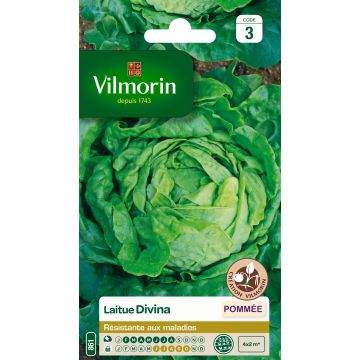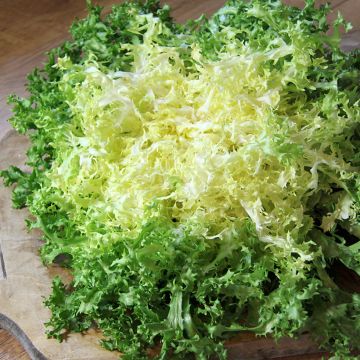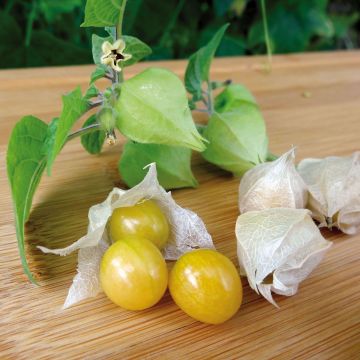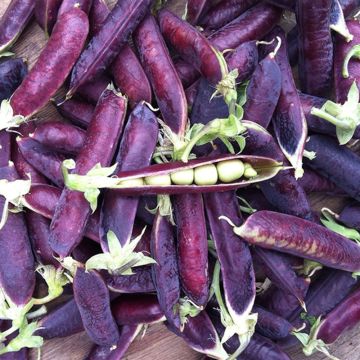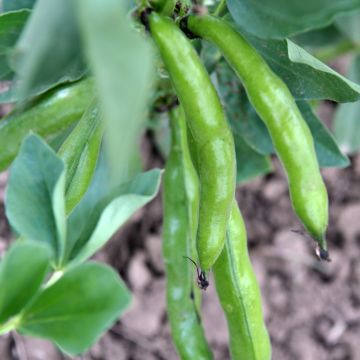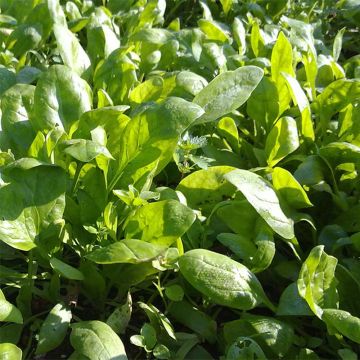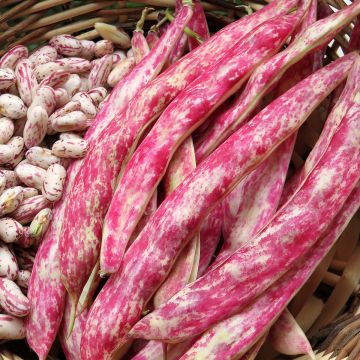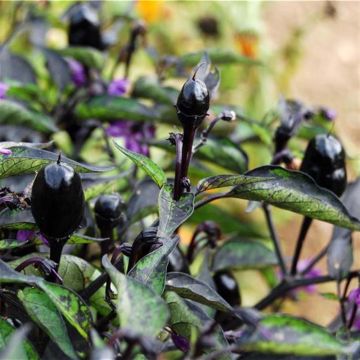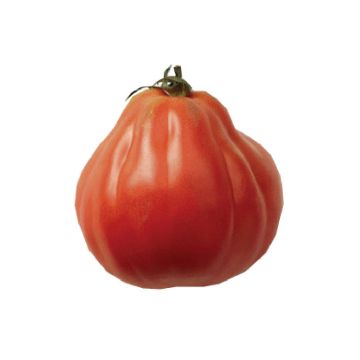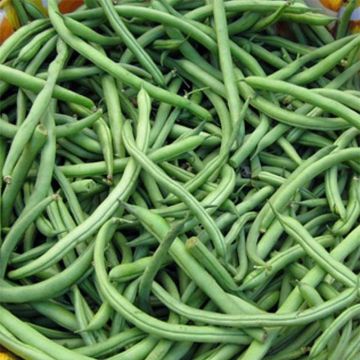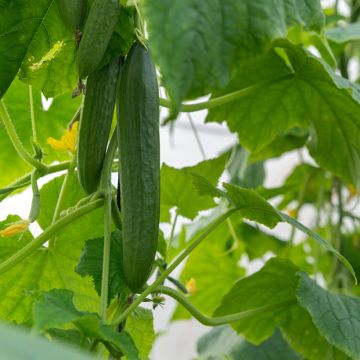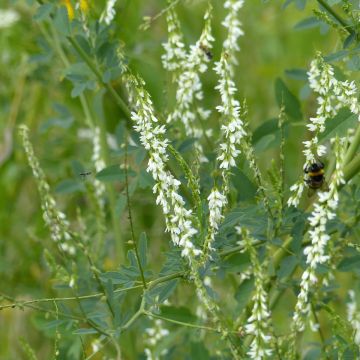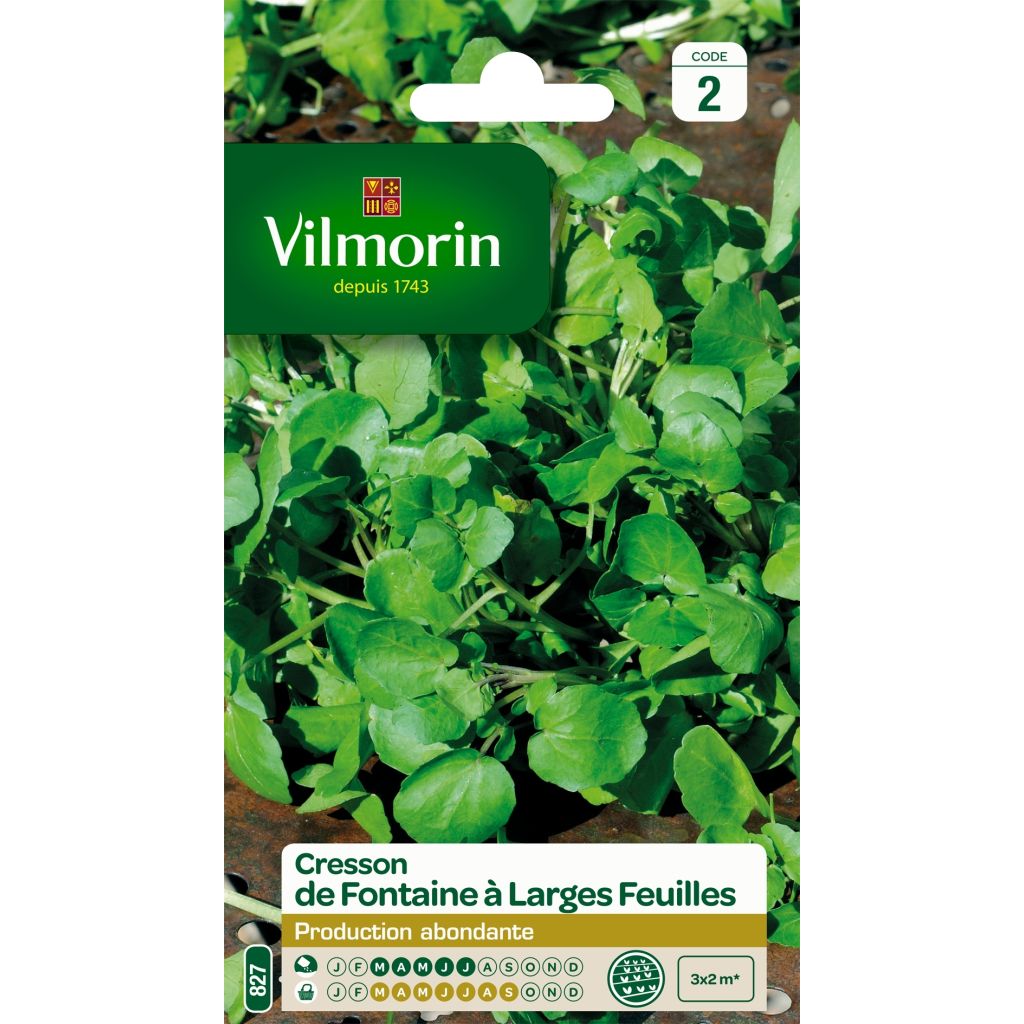

Cresson de Fontaine à larges feuilles - Vilmorin
Broad Leaf Watercress - Vilmorin Seeds
Nasturtium officinale
Watercress, Yellowcress
This item cannot be shipped to the selected country
Dispatch by letter from €3.90
More information
Schedule delivery date,
and select date in basket
This plant carries a 6 months recovery warranty
More information
We guarantee the quality of our plants for a full growing cycle, and will replace at our expense any plant that fails to recover under normal climatic and planting conditions.
Seed-only orders are dispatched by sealed envelope. The delivery charge for seed-only orders is €3.90.
Description
Broad leaf cress is a type of watercress that is particularly productive. Its large, tender and juicy deep green leaves have a delicious, slightly pungent flavour. It thrives in clear running water such as shallow streams; however, it can be grown successfully in troughs or containers providing the soil stays moist. Sow from March to July. Harvest from March to September.
Cress is the common name given to a collection of different plants, most of which belong to the Brassicaceae family alongside rocket and mustard. It is grown for its pungent, slightly peppery leaves that can be used as salad greens or to season and garnish dishes. Cress is renowned for its many health benefits. It is a powerful antioxidant due to its high beta carotene content. It can be enjoyed nearly all year round, in creamy soups in winter or freshly picked for delicious spring or summer salads. Cress thrives in the shade in cool, fertile, moist to wet soil. The most popular types are watercress (Nasturtium officinale), garden cress or peppergrass (Lepidium sativum), winter cress (Barbarea vulgaris) and upland cress (B. verna).
Harvesting: watercress is generally ready to harvest 2 months after sowing, when the plants are about 20 cm tall. Cut or pick off the leaves, leaving the stem intact. Make sure to harvest regularly as cress tends to bolt easily; regular harvesting also promotes fresh growth.
Storage: delicate cress leaves wilt quickly. They will keep for 2 to 3 days in the fridge with their stems submerged in a pot of water, like a bunch of flowers. Freezing the leaves isn't really worth the effort - why not freeze batches of tasty cress soup instead?
Good to know: watercress can sometimes be found growing in the wild. Make sure to only forage plants from clean, unpolluted water. Cress can soak up toxins from the water and host harmful parasites such as liver fluke.
Report an error about the product description
Harvest
Plant habit
Foliage
Botanical data
Nasturtium
officinale
Brassicaceae
Watercress, Yellowcress
Cultivar or hybrid
Annual
Other Salad leaf seeds
Planting and care
Sowing and cultivation:
Sow the seeds in rows spaced 10 cm apart, at the edge of a stream or in a 30 cm deep pit in which you will add a layer of 15 cm of a soil-compost mix. When the plants reach 3-4 leaves, form small clumps spaced 10 cm apart by removing the smallest plants. Cover with water and raise the level up to 10-15 cm as the plants grow.
Harvesting should be done 1 month after sowing.
You can also cultivate this watercress in open ground by sowing in a very fresh soil, in the shade, and watering regularly and abundantly.
Seedlings
Care
Intended location
This item has not been reviewed yet - be the first to leave a review about it.
Vegetable seeds
Haven't found what you were looking for?
Hardiness is the lowest winter temperature a plant can endure without suffering serious damage or even dying. However, hardiness is affected by location (a sheltered area, such as a patio), protection (winter cover) and soil type (hardiness is improved by well-drained soil).

Photo Sharing Terms & Conditions
In order to encourage gardeners to interact and share their experiences, Promesse de fleurs offers various media enabling content to be uploaded onto its Site - in particular via the ‘Photo sharing’ module.
The User agrees to refrain from:
- Posting any content that is illegal, prejudicial, insulting, racist, inciteful to hatred, revisionist, contrary to public decency, that infringes on privacy or on the privacy rights of third parties, in particular the publicity rights of persons and goods, intellectual property rights, or the right to privacy.
- Submitting content on behalf of a third party;
- Impersonate the identity of a third party and/or publish any personal information about a third party;
In general, the User undertakes to refrain from any unethical behaviour.
All Content (in particular text, comments, files, images, photos, videos, creative works, etc.), which may be subject to property or intellectual property rights, image or other private rights, shall remain the property of the User, subject to the limited rights granted by the terms of the licence granted by Promesse de fleurs as stated below. Users are at liberty to publish or not to publish such Content on the Site, notably via the ‘Photo Sharing’ facility, and accept that this Content shall be made public and freely accessible, notably on the Internet.
Users further acknowledge, undertake to have ,and guarantee that they hold all necessary rights and permissions to publish such material on the Site, in particular with regard to the legislation in force pertaining to any privacy, property, intellectual property, image, or contractual rights, or rights of any other nature. By publishing such Content on the Site, Users acknowledge accepting full liability as publishers of the Content within the meaning of the law, and grant Promesse de fleurs, free of charge, an inclusive, worldwide licence for the said Content for the entire duration of its publication, including all reproduction, representation, up/downloading, displaying, performing, transmission, and storage rights.
Users also grant permission for their name to be linked to the Content and accept that this link may not always be made available.
By engaging in posting material, Users consent to their Content becoming automatically accessible on the Internet, in particular on other sites and/or blogs and/or web pages of the Promesse de fleurs site, including in particular social pages and the Promesse de fleurs catalogue.
Users may secure the removal of entrusted content free of charge by issuing a simple request via our contact form.
The flowering period indicated on our website applies to countries and regions located in USDA zone 8 (France, the United Kingdom, Ireland, the Netherlands, etc.)
It will vary according to where you live:
- In zones 9 to 10 (Italy, Spain, Greece, etc.), flowering will occur about 2 to 4 weeks earlier.
- In zones 6 to 7 (Germany, Poland, Slovenia, and lower mountainous regions), flowering will be delayed by 2 to 3 weeks.
- In zone 5 (Central Europe, Scandinavia), blooming will be delayed by 3 to 5 weeks.
In temperate climates, pruning of spring-flowering shrubs (forsythia, spireas, etc.) should be done just after flowering.
Pruning of summer-flowering shrubs (Indian Lilac, Perovskia, etc.) can be done in winter or spring.
In cold regions as well as with frost-sensitive plants, avoid pruning too early when severe frosts may still occur.
The planting period indicated on our website applies to countries and regions located in USDA zone 8 (France, United Kingdom, Ireland, Netherlands).
It will vary according to where you live:
- In Mediterranean zones (Marseille, Madrid, Milan, etc.), autumn and winter are the best planting periods.
- In continental zones (Strasbourg, Munich, Vienna, etc.), delay planting by 2 to 3 weeks in spring and bring it forward by 2 to 4 weeks in autumn.
- In mountainous regions (the Alps, Pyrenees, Carpathians, etc.), it is best to plant in late spring (May-June) or late summer (August-September).
The harvesting period indicated on our website applies to countries and regions in USDA zone 8 (France, England, Ireland, the Netherlands).
In colder areas (Scandinavia, Poland, Austria...) fruit and vegetable harvests are likely to be delayed by 3-4 weeks.
In warmer areas (Italy, Spain, Greece, etc.), harvesting will probably take place earlier, depending on weather conditions.
The sowing periods indicated on our website apply to countries and regions within USDA Zone 8 (France, UK, Ireland, Netherlands).
In colder areas (Scandinavia, Poland, Austria...), delay any outdoor sowing by 3-4 weeks, or sow under glass.
In warmer climes (Italy, Spain, Greece, etc.), bring outdoor sowing forward by a few weeks.

































